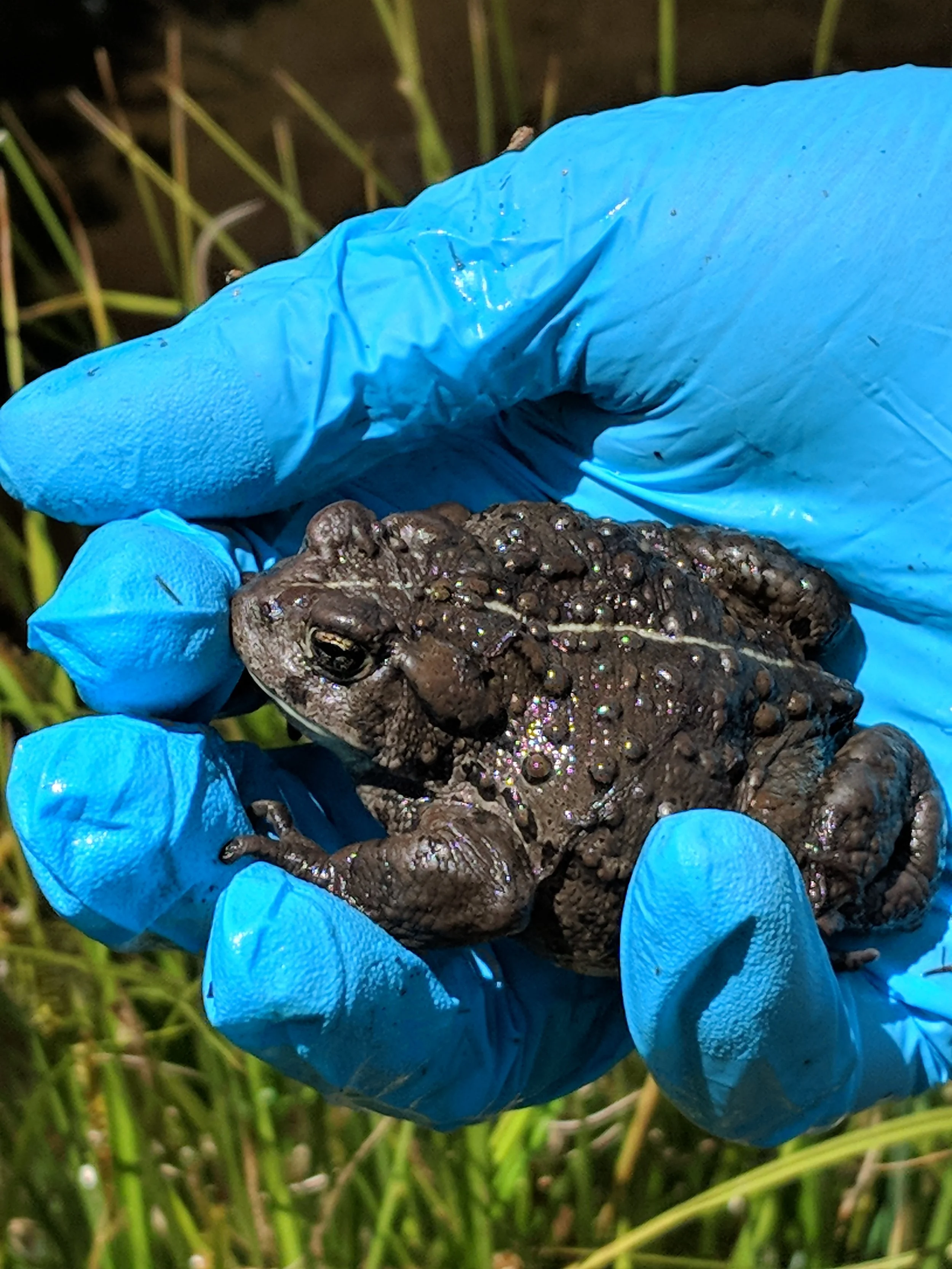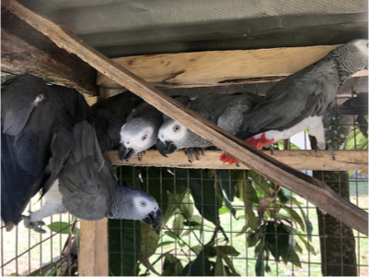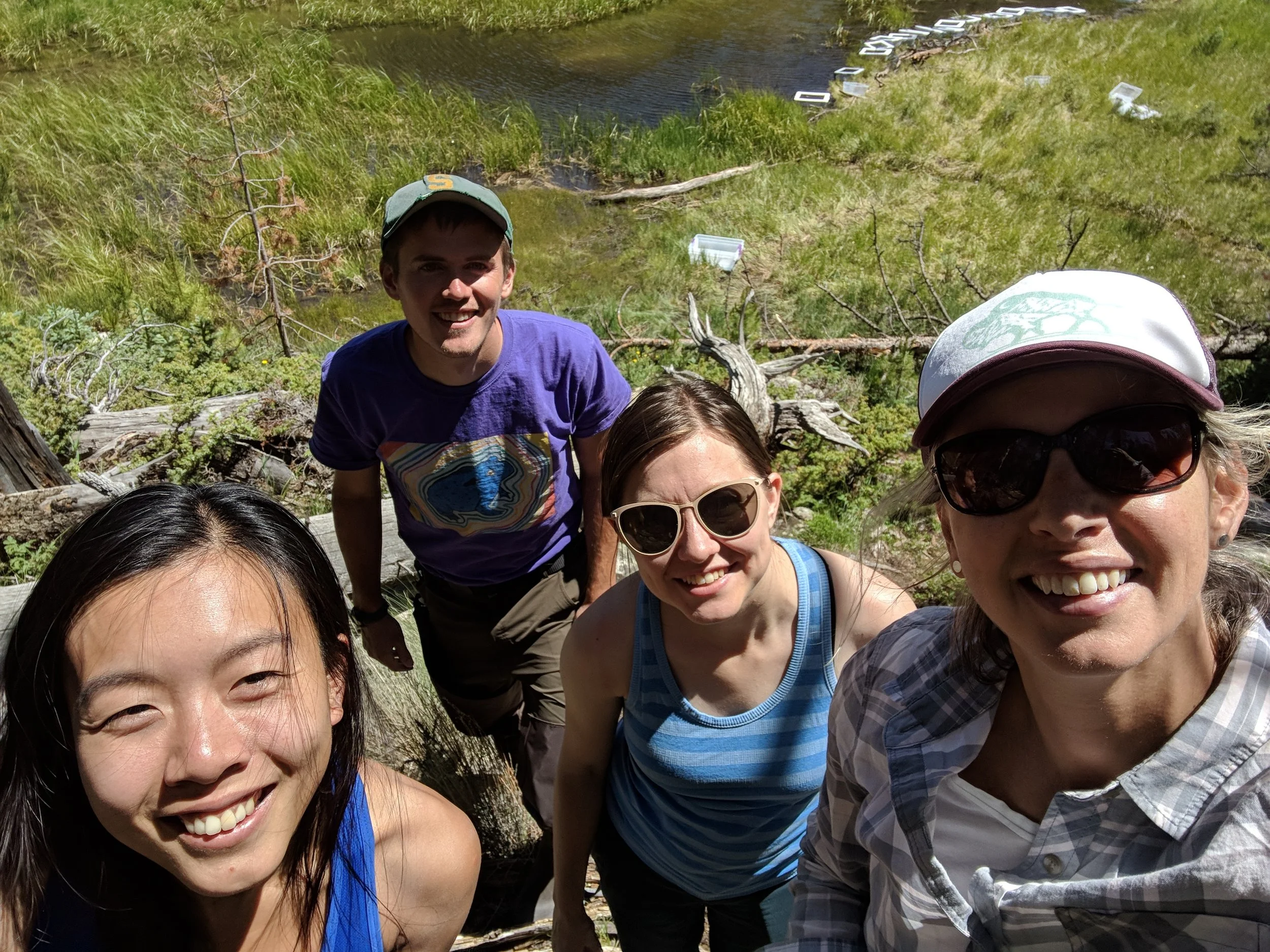Adult Boreal Toad photo by Paul Foutz, Colorado Parks and Wildlife.
Relationships between microbial organisms and animals span the gamut from beneficial symbioses to harmful pathogens. At the McKenzie Lab at the University of Colorado Boulder, Dr. Valerie McKenzie and her research assistants study the full range of these relationships. In this talk, Valerie will discuss the reasons why they are seeing more harmful emerging pathogens that are affecting wildlife in modern times. She will zoom in on a fungal pathogen that is causing amphibian declines at a global scale, including amphibians in Colorado. Her lab is studying the skin microbiome of Colorado boreal toads and they have discovered that some of the naturally occurring bacteria that live on toads can protect them from the fungal pathogen. Valerie will share some of her lab’s experimental approaches to developing probiotic treatments for conservation of this locally endangered species. She will also share a new project using microbes as a novel intervention in the fight against wildlife trafficking. Overall, there many intersections between microbiology and wildlife conservation that are fascinating and offer novel solutions to conservation challenges.
African Grey Parrots seized from traffickers in Nigeria. photo by Rowan Martin, World Parrot Trust.
Valerie McKenzie Selfie
Dr. Valerie McKenzie is Professor of Ecology & Evolutionary Biology (EBIO) at the University of Colorado Boulder. Previously, she studied zoology and ecology at the University of Connecticut and the University of California Santa Barbara, and worked as a disease ecologist for the National Ecological Observatory Network (NEON) in Boulder. Valerie’s research program combines the fields of parasitology, disease ecology, microbial ecology, and wildlife conservation, seeking to understand how human disturbances affect the parasites, pathogens, and symbiotic microbes of wildlife. These studies inform conservation biology by identifying key factors that lead to shifts in the abundance and distribution of parasites and pathogens, in hopes of mitigating disease threats to vulnerable wildlife. More generally, her work seeks to understand symbiotic relationships between animals and microbial organisms and how those interactions can shape biological functions ranging from disease resistance to evolution of new traits.
Valerie teaches courses in parasitology, conservation biology, host-microbe interactions, and "How to Grad School" for new graduate students, and serves as the Associate Chair of Graduate Studies for EBIO. She has published more than 60 peer-reviewed scientific journal articles and given invited talks around the world. In 2024, she received CU Boulder campus awards for service and leadership and for graduate mentoring, recognizing her interests in building supportive working relationships and training innovative and collaborative individuals in the science workforce. Visit the McKenzie Lab website to learn more about her research.
Valerie McKenzie and her 2019 “Dream Team” of toad researchers. Photo by Valerie McKenzie.
In-Person Gathering - BCAS welcomes everyone back to in-person programs at the Unitarian Universalist Church of Boulder. Doors open at 7 PM for socializing and the program begins at 7:15. While the church is no longer requiring masks, we encourage you to wear your favorite high-quality mask, and we will provide free surgical masks for anyone who needs one. Please stay home if you feel sick, and watch the program on Zoom!
Online Gathering - The meeting room will open at 7:10 PM, and the program starts at 7:15 PM. Questions for the speaker will be taken from the chat feature of the Zoom session.
Click this link to join the program.
Meeting ID: 873 7725 4205
---
One tap mobile
+17193594580,,87377254205# US
+12532050468,,87377254205# US
Join instructions
https://us02web.zoom.us/meetings/87377254205/invitations?signature=JTY4S9ebyehyvYiIUxFq2mrCzLTfAxPb7QxrsEjPYVs




